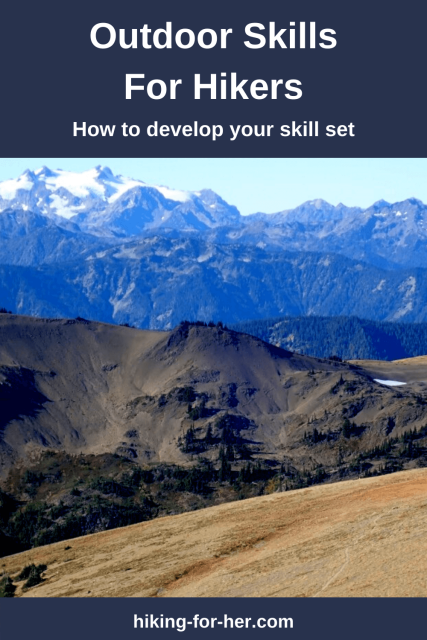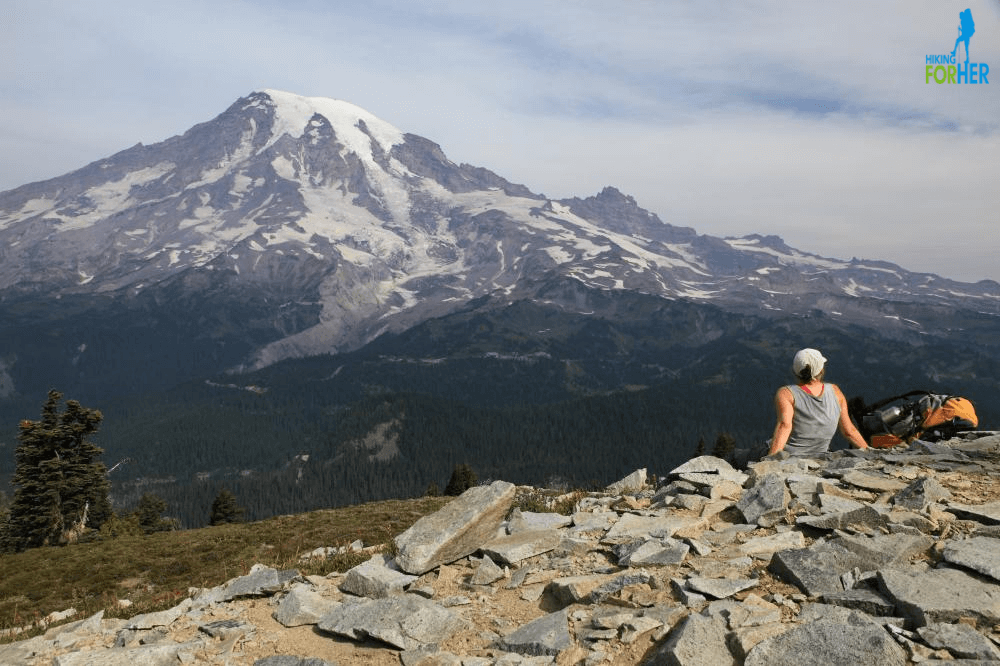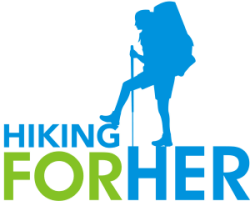
Best Outdoor Skills
For Hikers To Develop
By Diane Spicer
Outdoor skills for hikers can mean a commitment to making time for some survival courses, either on line or in person.
- REI Co-op offers courses for hikers.
Or it could mean something as simple as preparing with common sense and some outdoor gear before hitting the trail.
That's what we'll concentrate on here.
The payoff for a strong outdoor skill set
Every time you strengthen your outdoor skills, you are also one step closer to helping your family survive an extreme weather event off trail that may force you from home: hurricane, tornado, flood, fire, earthquake, or wind storm.
Never overlook how versatile and useful your outdoor skill set is for helping overcome adversity.
Let's take a peek at how to develop, and when to deploy, a solid set of outdoor skills as an outdoors woman.
Drop down to the sections you're most interested in quickly with these links:
- Leave No Trace
- Avoid getting lost or know what to do if you're lost
- Carry a survival kit
- Clean water
- More skills
Outdoor skills for hikers:
start with Leave No Trace
Hikers follow marked trails and routes through forests, across plains and deserts, up mountain sides and along rivers.
So the idea of not leaving a trace seems counter-intuitive at first glance.
After all, the trail is a pretty blatant sign of human activity!
Hiking For Her's take on Leave No Trace principles are outlined for you here, in case you've never heard of them.
To be succinct, LNT means that anyone following in your path would never know you were there.
In other words:
- no orange peels thrown on the trail
- no sunflower seed husks spit onto rocks
- no candy wrappers from your pockets
- no garbage left behind at a camp site
- no destruction of trees
- no building of fire rings
- no initials carved onto a tree trunk
You get the idea, right?
But it goes beyond not being
a trail slob
Leave No Trace hiking implies a skill set that allows you to cook a meal, set up a tent or hammock, take care of personal hygiene needs, and enjoy your environment without leaving a mark on it.
That's a big chunk of learning, and to honest, it will take many backpacking trips and day hikes before you master all of it.
Hopefully, this website will give you some tips on how to become one with the outdoors.
You can start with these links:
But there are other outdoor skills you need as a hiker. Let's discuss a few of them, shall we?
Important outdoor skills for hikers:
staying found
When you take a hike, either solo or with trail buddies, who's in charge of your safety?
Does it surprise you to know that YOU are always in charge?
Regardless of weather, terrain, or your mood that particular day, each and every time you step on the trail puts you on the hook for staying found.
Another, glass-half-empty way to look at this?
- Not getting lost
- Tips on that are right here
So if you "pass the buck" for safe hiking navigation to your electronic device or a hiking buddy, and something goes wrong, you are every bit as responsible for your predicament.
To ensure that you are always exactly where you think you are on the map, take a few moments to read these navigation tips.
Then make it a point to strengthen your navigation weak points on your next few hikes.
- You might need to invest in a new piece of technology, or want to take a class on compass & map reading.
If not for you, do these things for those loved ones back home waiting for you to finish up your hike and head home to them!
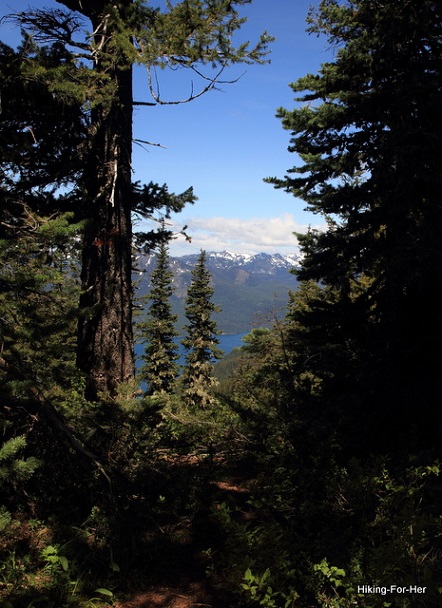 Make time to learn a few skills and you'll make your trail time safer
Make time to learn a few skills and you'll make your trail time safer
Outdoor skills for hikers:
customize a survival kit
If you're the type of hiker who enjoys well marked trails within easy walking distance of established camp grounds, roads and other places where help would be easy to find, you don't need a lot in the way of survival gear.
- However, you should be prepared to stay sheltered in place overnight if the weather turns sour or darkness falls and you don't know where you are.
- Or, worse yet, you cannot get back to the trail head under your own power.
- Hypothermia will be a concern except in the mildest conditions.
Always having your ten essentials in your backpack is a great habit to form, and to pass along to up and coming hikers who look up to you.
The extra food, water and clothing can get you through a sleepless night in the woods, long enough for a Search and Rescue team to find you in decent shape the next day.
But if you're a hiker who goes off trail to explore, or takes risks with weather, amount of daylight, or difficult terrain, then you need more developed outdoor skills for hikers.
And a survival kit designed for hikers.
- Read my suggestions for building or purchasing a hiking survival kit here.
Outdoor skills for hikers:
clean water
If you carry only a small volume of water on your hikes, you are cutting a corner that probably shouldn't be cut, in my humble opinion.
Yes, water is heavy.
It's also essential for life.
Don't forget the Hiker Survival Rule of Three:
- You can survive 3 minutes without air.
- Three days without water won't be pleasant, but it's possible.
- You can go 3 weeks (or longer, depending on your fat stores) without food.
So keep up the deep breathing and carry enough water!
A few extra trail snacks in your backpack is a good idea, too.
How much water is enough
to bring on a hike?
"Enough" is a topic for debate, but one liter per day hiker in moderate weather is my recommendation.
Backpackers need more for evening food preparation and camp cleaning chores. Read more here.
Don't plan on hauling water?
Use this alternate strategy to keep your pack weight lighter while you avoid dehydration on a hiking trail:
1. Consult a current map for your planned route, noting where surface water is available.
- No map skills yet? Start here.
2. Be sure the water is not seasonal, to avoid disappointment in late summer/early fall when streams run dry.
- To maximize your chances of access to water, look for standing surface water on your map: lakes, ponds, tarns.
3. Bring water purification technology, and know how to use it.
This collection of outdoor skills for hikers is fundamental to your safety, so please devote some time to learning them.
See any holes in your outdoor
skills for hikers repertoire?
In my experience, women hikers tend to have weak spots in their approach to navigation, back country first aid, survival gear, and the discipline to carry ten essentials.
Or maybe that's just me?
Regardless, if reading this page has identified any weak spots in your outdoor skill set as a hiker, please do me a favor and get up to speed.
Knowing that you're safe and happy on every trail that you tackle helps me sleep better at night ;)
And a few others, too:
- Your local Search and Rescue (SAR) team thanks you.
Most importantly, your loved ones thank you in advance. This is especially true for solo hikers.
Home page > Best Hiking Tips >
Best Outdoor Skills For Hikers
|
I get emails all the time about what I wear, eat, carry and love to use on the trail. That's
why I provide affiliate links to you: the best gear that I use myself and have seen used by other hikers is instantly
available for your consideration, and the gear company sends a few
pennies per dollar to this reader-supported hiking website. There is no added cost to you! Everyone ends up a winner: Great gear for you, strong gear companies, and more free hiking tips for everyone. Thanks very much for your support. It's warmly and sincerely appreciated. It also helps send these hiking tips to all your virtual trail buddies around the globe. |
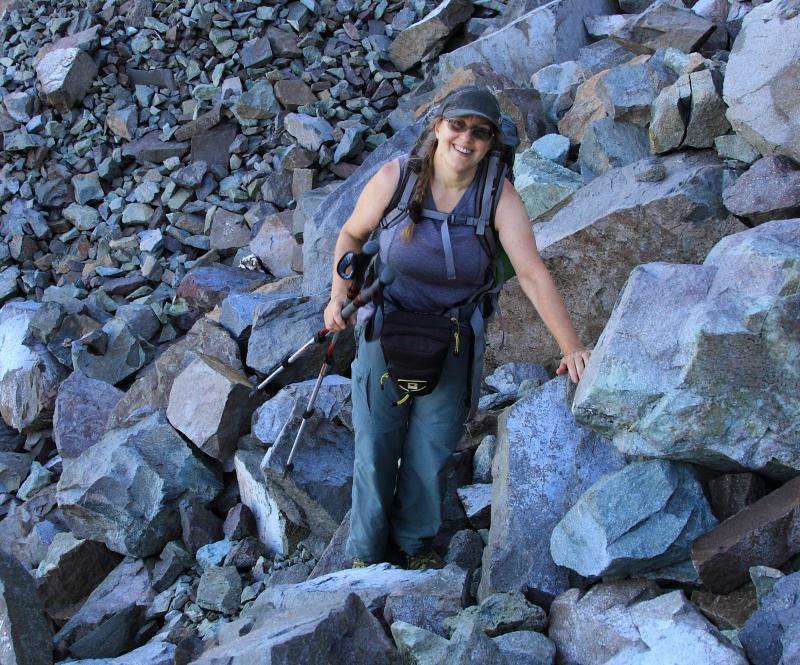 |
